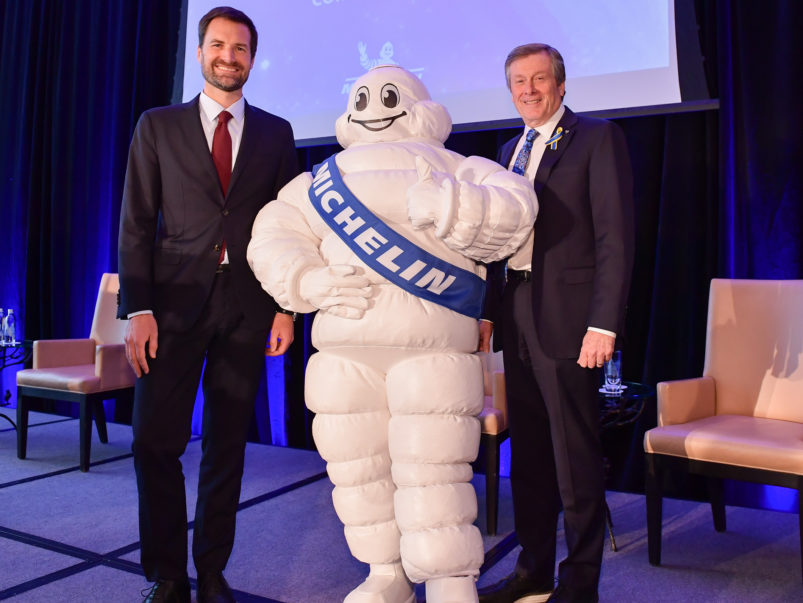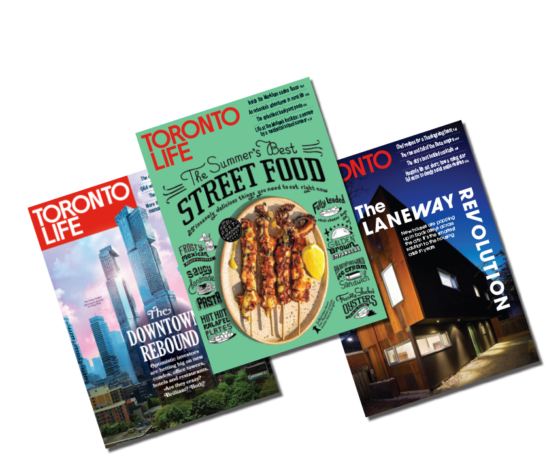“It’s not fair for your paycheque to be contingent on a stranger’s mood”: David Neinstein on his decision to go tip-free at Barque Smokehouse

Barque Smokehouse owner David Neinstein first started thinking that gratuities were maybe gratuitous in 2019, after visiting one of no-tipping-pioneer Danny Meyer’s restaurants in New York. He’s been chatting it through with his staff and customers ever since, and last month, Barque Smokehouse did away with tipping and instituted a starting wage of $22.25 per hour for all staff. The Roncesvalles barbecue joint joins a growing list of full-wage establishments, including Bar Isabel, Marben and Richmond Station. We caught up with Neinstein to talk about going tip-free and why it should be the norm.
First thing’s first: Why tip-free?
I love this job, but it’s a job. And people should be paid for their work because they’re skilled professionals. You don’t tip your electrician; you don’t tip tree trimmers. We should pay servers what they deserve to get paid. I also don’t feel like it’s fair for anyone’s paycheque to be contingent on the moods of strangers.
How long has this been in the works?
A long time. But, as you can imagine, it was a harder sell for waitstaff who would be losing out on tips. Then we had the pandemic, the rise of the Black Lives Matter movement and all of the horrible news about residential schools, and everyone just wanted to do what they could, so I was able to galvanize the team to want to even out the compensation structure for the right reasons. Everyone was in, even those who would take a pay cut.
Yeah, I wanted to ask—with your new policy, everyone starts at $22.50 an hour: dishwashers, bussers, waitstaff. That’s great news for those who didn’t get gratuities before, but maybe not so much for servers who are used to those sweet (and usually undeclared) tips.
So the elephant in the room is cash. And that’s correct—we don’t give anyone cash any longer. That’s what they’re losing. But what they’re gaining is guaranteed wages whether they work a Tuesday lunch or a Saturday dinner. There’s no competition for shifts. They have a place they’re proud to work at, where they’re treated well, without discrimination, with mutual respect and with opportunities for advancement.
How did you get everyone on board?
This was very methodical. Corey Mintz—he literally wrote the book on this—connected me with businesses that had already gone this route, to see what worked and what didn’t. One of the best pieces of advice I got was from Carl Heinrich at Richmond Station. He told me to check in with my staff regularly—I do it every quarter—to get a sense of how it’s going. It hasn’t been long, but it really helped get their buy-in and adjust our program to meet their needs.
What kind of changes have you made in response to feedback?
Initially, we were offering only sick days—no personal days—and a lot of people expressed reservation at that. And I get it! I generally want to work, but sometimes I’m just not feeling it. And I don’t want to feel like I have to fake being sick in order to justify not coming in, just so I can get a bit of head space. So now we have both, which means people can go see a podiatrist or go see a movie.
Any other lessons from those that came before you?
For sure. Marben has this amazing benefits package, and executive chef Chris Locke hooked me up with their provider so we could adopt it for our staff. It has both mental and physical coverage. The mental health package covers therapy, addiction, couples counselling, financial advising—anything that would cause someone stress—and it’s unlimited. And then there’s the standard health benefits package—for things like eyeglasses, orthotics and visits to the dentist—also with no restrictions and no limitations, but as an employer, I pay only if a plan member uses it. So the team ends up with wider coverage, and I don’t give an insurance company money for nothing.
Speaking of paying for stuff: inflation, supply chain issues and now raised wages. That all must be reflected in your menu prices. How have customers reacted?
Honestly, we thought the sticker shock was going to be a big deal, but it turns out…no one gives a shit? Or maybe I should call it “casual acceptance.” People either say “Okay, fine” or “That’s really great,” and then they pay and are on their way. And then they come back! Business is slowly and steadily increasing.
Do you think tipping makes sense anywhere, like bars or hair salons?
I think that the government should legislate tipping out of the system. It’s a literal remnant of slavery, and it’s an opportunity for oppression. It creates an uneven playing field for those in professions that have historically been tipped, and that’s wrong. It shouldn’t fall on the shoulders of small businesses to make this happen—we’re hanging on by the skin of our teeth, and this is a hell of a risk financially and operationally for us. But it’s the right thing to do.









